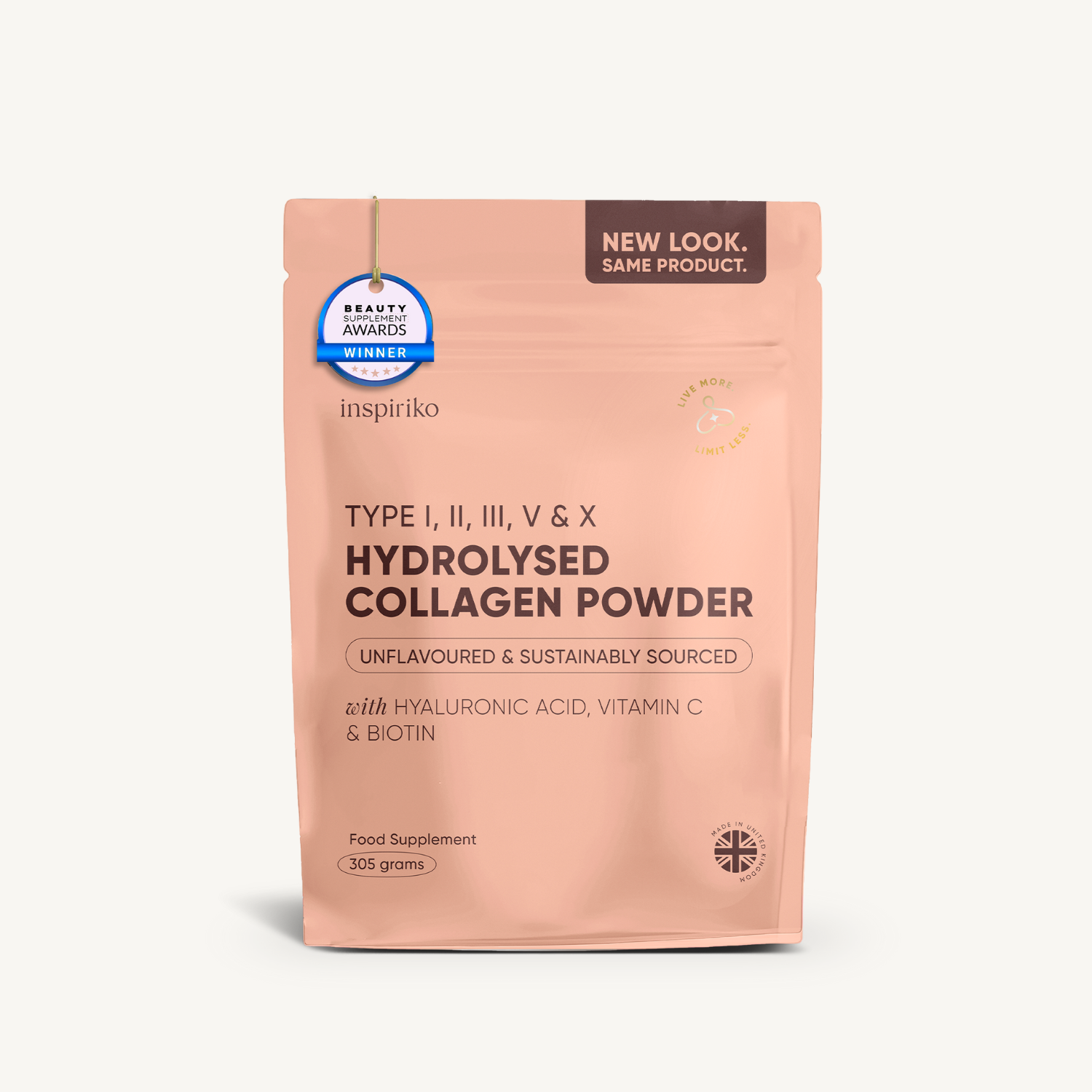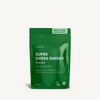As a woman, you know there’s an inevitable part of ageing: going through menopause. And this can be a difficult path to go through, particularly if you don’t have an appropriate diet. Such is the case of many women in the UK. Did you know that 20% of people have a vitamin deficiency (1)? This happens because most people have poor eating habits that do not provide them with the vitamins, minerals and other nutrients they need to stay healthy and happy.
So, nutrition is essential to alleviate menopause symptoms like hot flashes and reduce the risk of problems like heart disease or osteoporosis. Wondering how to boost your diet and feel like your best again? Keep on reading this article, where we present you with 7 must-have foods so you can thrive during menopause.

7 Must-Have Foods During Menopause: A Detailed guide
Menopause brings about a wide variety of changes in your body. For example, your metabolism slows down and you’re likely to gain weight even if you don’t change anything in your routine. Hormonal imbalance also makes it difficult to sleep and irritability can change the way you relate with your friends and family.
But you don’t have to let menopause wreak havoc on your life. Choosing to have a healthy diet can help you alleviate symptoms and feel like yourself again. If you’re ready to take up menopause-friendly diet habits, here we present you with 7 foods you should eat to make sure your body has all the nutrients it needs to function as it should:
1. Lean Protein
As if hot flashes, insomnia and irritability were not enough, during menopause, there’s also a big loss of muscle mass. This happens as a result of the decline of oestrogen that characterises this period in life (2). This hormone has a crucial role to play in protein synthesis, so the lack of it can impact your body’s capacity to make new muscle tissue.
To prevent this muscle loss from affecting your life, you should give your body as much support as possible. One way is to start eating a lot more protein than you did before. As a general recommendation, you should aim for 20-25 gr of protein per meal (3). It’s the equivalent of eating 3 large eggs or a big portion of Greek yoghurt.
What are some good sources of lean protein?
- Chicken, turkey and fish like salmon or tuna;
- Eggs;
- Legumes and grains;
- Spinach;
- Cottage cheese;
- Oatmeal;
- Greek yoghurt (which is also high in calcium!).
2. Prebiotics and Probiotics
Your gut microbiome will need support during perimenopause and menopause. During this period, your metabolism changes as a result of hormonal imbalance, and there are shifts in the bacteria that live in your microbiome (4). As a result of this shift, every system in your body may be affected. Gut imbalances can cause irritability, insomnia, problems with your hormones, decreased immune function, headaches, and, of course, digestive discomfort.
To prevent bad bacteria from overpowering the good, it’s important to increase your consumption of prebiotics and probiotics daily. Prebiotics, on the one hand, are non-digestible plant fibres that feed probiotics. These probiotics are the actual good bacteria that will live in your gut, supporting your immunity, mood, digestion, and overall health (5).
What are some good sources of prebiotics?
- Fresh fruits (bananas are rich in prebiotics!),
- Vegetables like onion, garlic, and artichokes,
- Beans,
- Whole grains.
And if you’re struggling to eat enough prebiotics every day, have in mind that taking natural supplements like Love Thy Gut can be very useful! This is a 100% natural product made of organic fibre, high in prebiotics and specially designed to rebalance your gut microbiome and help you recover your health and well-being.
What are some good sources of probiotics?
- Fermented foods like kimchi and miso.
- Yoghourt and kefir
3. Healthy Fats
We have all heard how fats are harmful to our health, but this is not exactly true. There are many types of fats that are actually healthy and completely necessary for our well-being. For example, omega-3 fatty acids can support brain health and help with brain fog (which is common during menopause) and hot flashes, too (6). Plus, healthy fats are good for heart health (7). These are called monounsaturated and polyunsaturated fats and can help lower your bad cholesterol levels while stabilising your heart’s rhythm.
What are some good sources of healthy fats?
- Extra virgin olive oil,
- Fatty fish like salmon or tuna,
- Flaxseed and chia
- Nuts and seeds
4. Foods High in B Vitamins
Many times, menopause bring about mood swings and irritability, affecting your daily life and your relationships with others. This is when B vitamins come to the rescue, as they play an important role in brain health and cognitive function. Having enough B vitamins can also help you reduce brain fog, fatigue and low energy while a deficiency puts you at risk of cognitive decline and memory issues (8).
What are some good sources of B vitamins?
- Salmon;
- Leafy greens like spinach and turnips;
- Organic meat, particularly liver;
- Eggs;
- Milk;
- Oysters, clams, and mussels.
Another simple and effective way to get all the vitamins you need is by using natural supplements like Super Green Energy. This is a combination of 17 superfoods, naturally high in B vitamins and also packed with Vitamin C, antioxidants and phytonutrients.
5. Foods High in Phytoestrogens
By now, you already know that the lack of oestrogen is mainly responsible for the many symptoms you experience during menopause. The good news is that you can somehow make up for this lack of female hormones: phytoestrogens. These are substances contained in certain plants and seeds that mimic the effects of oestrogen in your body (9). Thus, they can be helpful when reducing symptoms like hot flashes and night sweats, as proven by research studies in the field (10).
What are some good sources of phytoestrogens?
- Soy foods like tofu, tempeh or milk;
- Red Clover
- Flaxseeds;
- Chickpeas and peanuts;
- Grapes, berries, and plums
- Green and black tea.
6. Calcium-Rich Foods
You should not forget about the importance of protecting your bones during this period. Osteoporosis is a common consequence of menopause, making your bones brittle and prone to fractures (11). Again, the lack of oestrogen is to blame for this loss of bone mass- women tend to lose around 10% of it within 5 years after menopause! (12)
To prevent osteoporosis you should aim for at least 1200 mg of calcium intake per day. This can be a bit difficult to achieve, as it corresponds to drinking 3 or 4 glasses of milk every day. So, you’ll need to be conscious about your diet to get all the calcium your body needs to work well. Plus, together with calcium, you should increase your intake of vitamin D3 (13), as it can slow down your bone’s weakening process.
What are some good sources of calcium?
- Dairy products (milk, cheese, yoghourt);
- Fortified juice;
- Dark leafy greens like spinach, broccoli and kale;
- Soybeans;
- Sardines and trout.
7. Foods Rich in Magnesium
Last but not least, minerals like magnesium should not be disregarded. Magnesium participates in hundreds of essential bodily functions, such as blood pressure regulation, nerve function, and muscle synthesis (14). Plus, our bones and joints contain high levels of this mineral.
The recommended intake of magnesium for women over 50 is around 320 mg a day (15).
What are some good sources of magnesium?
- Green leafy greens like spinach and kale;
- Pumpkin and chia seeds;
- Almonds, peanuts and cashews;
- Fortified cereal;
- Tap and mineral water;
- Whole grains;
- Soy milk;
- Black beans.
And don’t forget there’s an easy way to get all the magnesium you need: with natural supplements like Smarter Magnesium. This award winning Magnesium supplement is made of 2 different types of magnesium and will give you a boost of Vitamin D3, B6 and folic acid so you feel your best.
Final Takeaway
Menopause, and ageing in general, is inevitable, but strengthening our diet can help us feel and look better as we age. Most importantly, getting all the nutrients you need is crucial to ward off disease and alleviate annoying and painful menopause symptoms. While eating foods with phytoestrogens can help you reduce hot flashes and sleepless nights, having enough calcium will strengthen your bones.
Nuts, seeds, fruits, vegetables and whole grains, among other delicious foods, will be your best allies so you can enjoy perimenopause and menopause without having to worry about potential pain and disease.
Related Products
References for the blog
-
MSc, B. S. (2021, August 26). UK Statistics On Vitamin & Mineral Deficiency 2021 - Vitall.co.uk. Vitall.co.uk.
https://vitall.co.uk/health-tests-blog/statistics-vitamin-mineral-deficiency-uk -
Maltais ML, Desroches J, Dionne IJ. Changes in muscle mass and strength after menopause. J Musculoskelet Neuronal Interact. 2009 Oct-Dec;9(4):186-97.
-
Rizzoli, R., Stevenson, J. C., Bauer, J. M., van Loon, L. J. C., Walrand, S., Kanis, J. A., Cooper, C., Brandi, M.-L., Diez-Perez, A., & Reginster, J.-Y. (2014). The role of dietary protein and vitamin D in maintaining musculoskeletal health in postmenopausal women: A consensus statement from the European Society for Clinical and Economic Aspects of Osteoporosis and Osteoarthritis (ESCEO). Maturitas, 79(1), 122–132.
https://doi.org/10.1016/j.maturitas.2014.07.005 -
Baker, J. M., Al-Nakkash, L., & Herbst-Kralovetz, M. M. (2017). Estrogen–gut microbiome axis: Physiological and clinical implications. Maturitas, 103, 45–53.
https://doi.org/10.1016/j.maturitas.2017.06.025 -
Probiotics: What You Need To Know. (n.d.). NCCIH.
https://www.nccih.nih.gov/health/probiotics-what-you-need-to-know -
Patade, A., Devareddy, L., Lucas, E. A., Korlagunta, K., Daggy, B. P., & Arjmandi, B. H. (2008). Flaxseed Reduces Total and LDL Cholesterol Concentrations in Native American Postmenopausal Women. Journal of Women's Health, 17(3), 355–366.
https://doi.org/10.1089/jwh.2007.0359 -
The truth about fats: the good, the bad, and the in-between - Harvard Health. (n.d.). Harvard Health.
https://www.health.harvard.edu/staying-healthy/the-truth-about-fats-bad-and-good -
Morris, M. S. (2012). The Role of B Vitamins in Preventing and Treating Cognitive Impairment and Decline. Advances in Nutrition, 3(6), 801–812.
https://doi.org/10.3945/an.112.002535 -
Bacciottini L, Falchetti A, Pampaloni B, Bartolini E, Carossino AM, Brandi ML. Phytoestrogens: food or drug? Clin Cases Miner Bone Metab. 2007 May;4(2):123-30
-
Chen, M.-n., Lin, C.-c., & Liu, C.-f. (2014). Efficacy of phytoestrogens for menopausal symptoms: a meta-analysis and systematic review. Climacteric, 18(2), 260–269.
https://doi.org/10.3109/13697137.2014.966241 -
The Nutrition Source. 2022. Types of Fat. [online] Available at:
https://www.hsph.harvard.edu/nutritionsource/what-should-you-eat/fats-and-cholesterol/types-of-fat/#:~:text=Unsaturated%20fats%2C%20which%20are%20liquid,number%20of%20other%20beneficial%20roles -
Menopause and osteoporosis. (n.d.). Better Health Channel - Better Health Channel.
https://www.betterhealth.vic.gov.au/health/conditionsandtreatments/menopause-and-osteoporosis -
LeBlanc, E. S., Desai, M., Perrin, N., Wactawski-Wende, J., Manson, J. E., Cauley, J. A., Michael, Y. L., Tang, J., Womack, C., Song, Y., Johnson, K. C., O’Sullivan, M. J., Woods, N., & Stefanick, M. L. (2014). Vitamin D levels and menopause-related symptoms. Menopause, 21(11), 1197–1203.
https://doi.org/10.1097/gme.0000000000000238 -
Office of Dietary Supplements - Magnesium. (n.d.). Office of Dietary Supplements (ODS).
https://ods.od.nih.gov/factsheets/Magnesium-HealthProfessional/ -
Hayes, K. (n.d.). Are You Getting Enough Magnesium in Your Diet? AARP.
https://www.aarp.org/health/healthy-living/info-2018/magnesium-benefits-fd.html#:~:text=This%20mineral%20helps%20in%20maintaining,and%20320%20milligrams%20for%20women.






